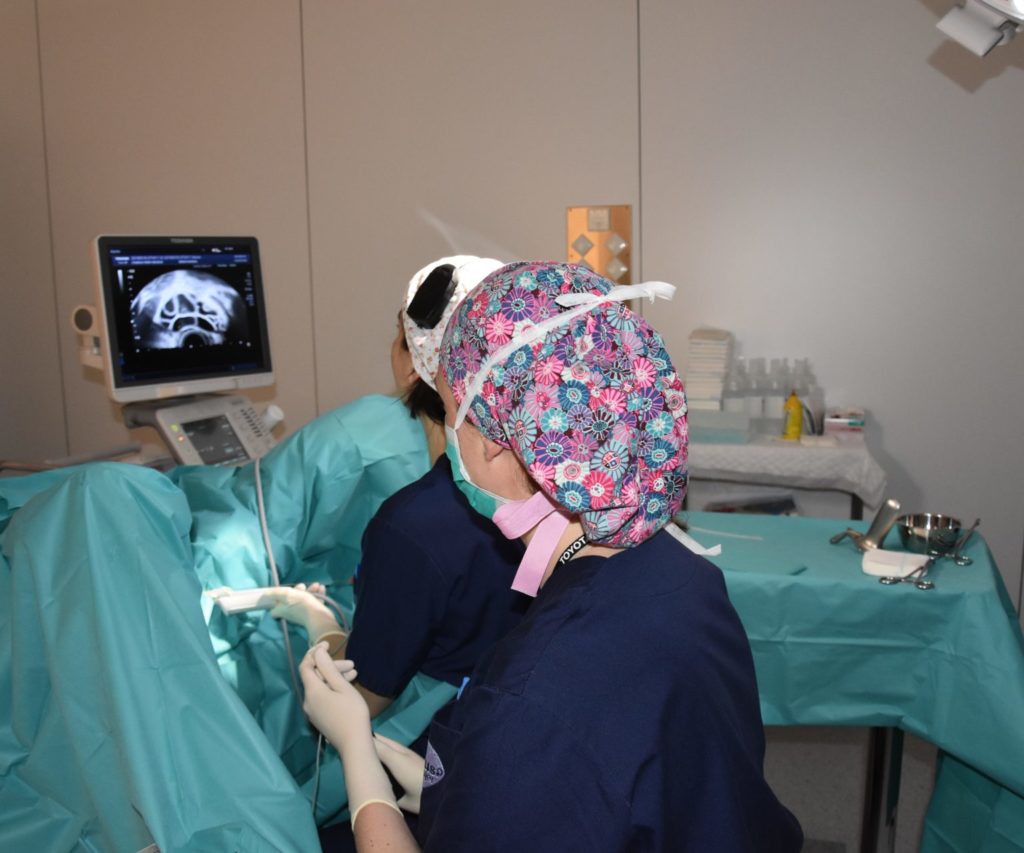
Since its introduction in 1980, oocytes donation is an assisted reproductive treatment whose demand has been increasing. The choice of ovarian stimulation treatment performed on egg donors is essential to optimize results, but also, and even more important, to ensure maximum safety for donors.
For this reason, Dr Francisca Martínez , gynaecologist at Dexeus Mujer, has promoted a study that carries out, for the first time, a systematic review of the scientific literature in order to analyse the ovarian stimulation treatments included in egg donation programs, analysing four key aspects: the evaluation prior to what the donor response may be, the planning of the stimulation treatment, the risk control of ovarian hyperstimulation syndrome or other complications, and the differences obtained between the use of fresh or vitrified embryos.
After analysing a total of 57 studies, from 191 preselected, the authors affirm that ovarian stimulation in egg donation is a safe procedure with an extremely low hospitalization rate after puncture. Currently, in addition, it is no longer necessary to synchronize the donor with the recipient of the eggs, thanks to the possibility of vitrifying the oocytes. In addition, the results regarding the pregnancy rate in the recipients are similar in both cases.
Likewise, the use of the discharge with GnRH Agonists for the final maturation of the oocytes should be the treatment of choice or reference in all donors, both because of the good results it offers in terms of obtaining oocytes and because it practically eliminates the risk of developing ovarian hyperstimulation syndrome (OHSS). It also offers good results in recipients pregnancy rates.
Finally, the authors point out that this update could also be useful in addressing ovarian stimulation treatments to preserve fertility in women under 35 years of age, since the target is similar to that of donors. However, they indicate that more research is needed in the field of protocols to be followed by ovarian stimulation treatments in egg donation programs, especially in terms of the long-term safety of new-borns, effective contraception during stimulation and satisfaction with treatment.
This research has been published in Human Reproduction Update, the scientific journal with the highest impact factor in Reproduction.
Reference study:
Individualised luteal phase support in artificially prepared frozen embryo transfer cycles based on serum progesterone levels: a prospective cohort study
M. Alvarez, Sofía Gaggiotti-Marre, Francisca Martínez, Lluc Coll, Sandra García, I. González-Foruria, Ignacio Rodríguez, Mónica Parriego, Nikolaos P. Polyzos, and Buenaventura Coroleu.
Hum Reprod. 2021 Mar 4; deab031. doi: 10.1093/humrep/deab031.
DEXEUS CAMPUS
Gran Vía de Carles III 71-75
08028 Barcelona
campus@dexeus.com
(+34) 93 227 47 09
® Copyright 2021-2025 Dexeus Mujer Foundation – Gran Via Carles III 71-75. 08028 Barcelona. Spain
| Cookie | Duration | Description |
|---|---|---|
| cookielawinfo-checkbox-analytics | This cookie is set by the GDPR cookie consent plugin. The cookie is used to store the user's consent for cookies in the "Analytics" category. | |
| cookielawinfo-checkbox-functional | The cookie is set by the GDPR cookie consent to record user consent for cookies in the "Functional" category. | |
| cookielawinfo-checkbox-necessary | This cookie is set by the GDPR cookie consent plugin. Cookies are used to store the user's consent for cookies in the "Necessary" category. | |
| cookielawinfo-checkbox-others | This cookie is used by the GDPR component. It is used to store the user consenting cookies in the "Other" category. | |
| cookielawinfo-checkbox-performance | This cookie is set by the GDPR cookie consent plugin. The cookie is used to store the user's consent for cookies in the "Performance" category. | |
| elementor | ||
| viewed_cookie_policy | The cookie is set by the GDPR cookie consent plugin and is used to store whether or not the user has consented to the use of cookies. It does not store any personal data. |
| Cookie | Duration | Description |
|---|---|---|
| _icl_visitor_lang_js | To allow multi-language functionality for web content. | |
| wpml_browser_redirect_test | Used to verify if cookies are allowed in the browser. |
| Cookie | Duration | Description |
|---|---|---|
| _ga | The _ga cookie, installed by Google Analytics, calculates visitor, session and campaign data and also tracks site usage for the site's analytics report. The cookie stores information anonymously and assigns a randomly generated number to recognize unique visitors. The _ga cookie, installed by Google Analytics, calculates visitor, session and campaign data and also tracks site usage for the site's analytics report. The cookie stores information anonymously and assigns a randomly generated number to recognize unique visitors. | |
| _ga_1WD9MFDMJK | This cookie is installed by Google Analytics. |
| Cookie | Duration | Description |
|---|---|---|
| wp-wpml_current_language | Necessary for the operation of the website in the different languages |